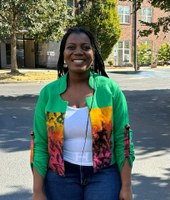STATE-REINFORCED SELF-GOVERNANCE & ADAPTIVE SOCIAL-ECOLOGICAL SYSTEMS LAB
We conduct field studies and lab experiments to study the legal and institutional foundations of effective environmental governance. We do this from the perspective of Ostrom Political Economy, asking how societies create democratic ("cooperative self-governing") solutions to adaptively address complex social-ecological dilemmas.
Adaptation, Transformation, and Social-Ecological Resilience
As Elinor and Vincent Ostrom so eloquently stated, human civilizations exist because fallible human beings learn to work together, in order to overcome complex social and ecological dilemmas. These dilemmas exist within and emerge from complex interactions among humans and their environments, resulting in diverse problems as well as governance systems and solutions. The conditions of these dilemmas are dynamic, requiring humans to adapt and transform their governance systems in order to achieve more resilient societies capable of satisfying human needs and ecological integrity.
In this lab, we study the kinds of governance systems societies create to address such complex social-ecological dilemmas, paying close attention to the inner workings and evolution of their formal and informal institutions (i.e., laws, norms, and best practices), governance network structures, and cooperative structures and processes. We seek to understand the fundamental building blocks ("institutional design principles") of effective environmental governance systems.
State-Reinforced Self-Governance (SRSG)
Adaptive and transformative governance systems (ATGs) are characterized as innovative societal problem-solving systems by which diverse government and non-government stakeholders work together ("collaborate") to devise ("co-produce") effective solutions to complex social-ecological dilemmas (Elinor Ostrom 1990, 1998; Vincent Ostrom, 1994). Multi-stakeholder communication and cooperation, social learning (learning from others), self-organization, and self-governance, are often seen as beneficial components of ATGs, allowing diverse actors to contribute independently and jointly to necessary innovations. Governments have a significant role to play by enabling (or constraining) diverse actors' capacity to not only self-govern, but also collaborate and co-produce. Sarker (2013) called this phenomenon "state-reinforced self-governance" (SRSG) to emphasize that modern democratic (self-governing) solutions to social-ecological dilemmas may involve direct support (reinforcement) of collaborative and self-governing solutions by formal governments.
Our research builds on this initial concept to develop a framework of SRSG, including design principles for effective SRSG of ATGS (DeCaro et al., 2017; under review). Research projects in this lab examine precisely how and under what conditions governments use their administrative, legislative, regulatory, fiscal, and other powers to either promote or hinder such collaborative self-governing solutions to a wide range of social-ecological dilemmas and societal problems. We also examine human nature to understand the behavioral foundations of state-reinforcement and ATGs (see Constitutional and Cooperative Decision-Making Lab).
Join my Lab!
- UNDERGRADUATE STUDENTS: Are you interested in being an Undergraduate Research Assistant in my lab? Please complete this application.
- GRADUATE STUDENTS: Email me to inquire about opportunities in Psychological & Brain Sciences' Experimental Psychology Program.
Current PhD Students
Mehrsa Ahmadpour
Dissertation Project: An Institutional Analysis of Shared Understanding and Coordinated Actions: The Case of Middle Creek Watershed Pollution Control

Akua Asante
University Fellowship Recipient
Urban Flood Resilience (anticipated)

Abdullah Kaiser
State-Reinforced Sustainable Development (anticipated)
Former PhD Students

Mary Abigail Rudolph, PhD
University Fellowship Recipient
Toward an urban food commons: Participatory action research on food apartheid and community-based agrifood system governance in Louisville, KY. (2024) Electronic Theses and Dissertations. Paper 4485. Retrieved from https://ir.library.louisville.edu/etd/4485/.
Amma Adusei, PhD
Using the State-Reinforced Self-Governance Framework to evaluate neighborhood revitalization in the Choice Neighborhoods Initiative. (2024). Electronic Theses and Dissertations. Paper 4364. Retrieved from https://ir.library.louisville.edu/etd/4364

